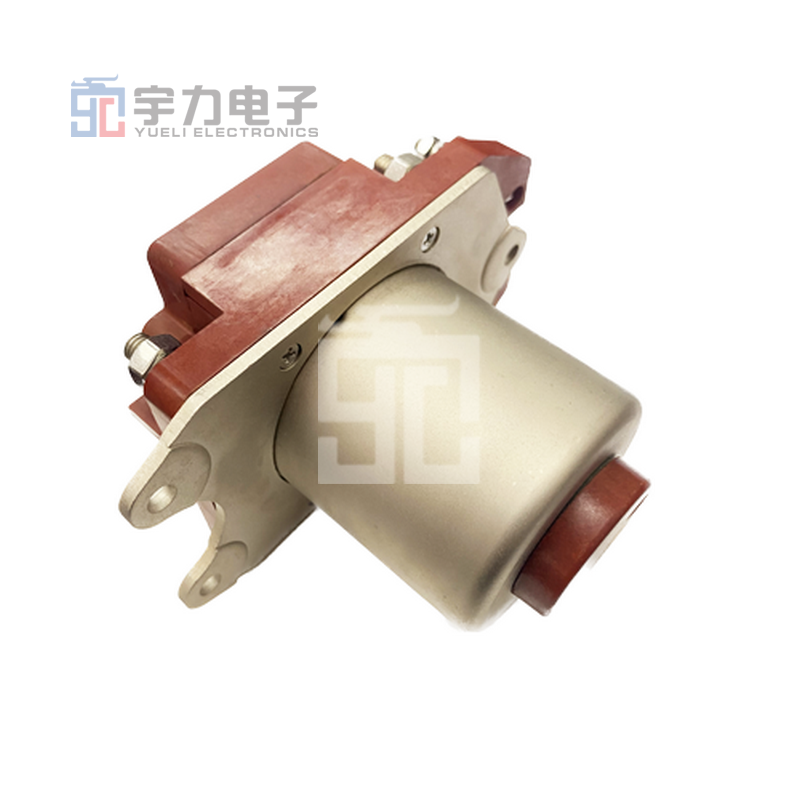Understanding DC Contactors: The Key to Efficient Electrical Control
2025-06-11

DC contactors are vital components in the realm of electrical control systems, particularly when it comes to managing the flow of direct current (DC) in various applications. These electromechanical devices act as switches, enabling or disabling power to a load while handling high voltage and current levels. Their design and functionality make them crucial in various sectors, including automotive, renewable energy, and industrial equipment.
One of the primary functions of DC contactors is to control large electrical loads. When a low-power control signal is applied, the contactor creates a magnetic field, which closes the contacts and allows current to flow to the connected load. This mechanism ensures that operators can safely control high-power devices without directly handling high voltages, reducing the risk of electric shock or equipment damage.
DC contactors are particularly beneficial in applications where power efficiency is critical. Their ability to switch on and off at high speeds without generating significant heat makes them ideal for use in systems like electric vehicles, solar power systems, and battery storage applications. This rapid switching capability contributes to enhanced energy efficiency, ensuring that systems operate optimally with minimal energy loss.
In addition to their efficiency, DC contactors offer versatility in their applications. They can be employed in a variety of scenarios, from simple light control circuits to complex automation systems. Their reliability is a key factor that makes them a preferred choice for many engineers and designers in various industries. Many modern DC contactors are designed to provide feedback and diagnostic capabilities, allowing for better monitoring and maintenance of the systems they control.
Another notable advantage of DC contactors is their ability to withstand harsh environmental conditions. Many are designed with protective features such as weatherproofing and enhanced insulation, making them suitable for outdoor applications or in environments with high levels of dust and moisture. This durability ensures prolonged service life and reduced maintenance costs, making them an economical choice for long-term installations.
When selecting a DC contactor for your application, it is crucial to consider factors such as the operating voltage and current, the type of load (resistive or inductive), and the environmental conditions it will face. Proper selection not only ensures optimal performance but also enhances safety and reliability in your electrical systems.
In conclusion, DC contactors are indispensable in the efficient control of electrical currents in diverse applications. Their ability to manage high power loads, coupled with their versatility, reliability, and resilience, make them a significant component in modern electronic systems. Understanding their functionality and advantages can aid in making informed decisions for your electrical control needs.
One of the primary functions of DC contactors is to control large electrical loads. When a low-power control signal is applied, the contactor creates a magnetic field, which closes the contacts and allows current to flow to the connected load. This mechanism ensures that operators can safely control high-power devices without directly handling high voltages, reducing the risk of electric shock or equipment damage.
DC contactors are particularly beneficial in applications where power efficiency is critical. Their ability to switch on and off at high speeds without generating significant heat makes them ideal for use in systems like electric vehicles, solar power systems, and battery storage applications. This rapid switching capability contributes to enhanced energy efficiency, ensuring that systems operate optimally with minimal energy loss.
In addition to their efficiency, DC contactors offer versatility in their applications. They can be employed in a variety of scenarios, from simple light control circuits to complex automation systems. Their reliability is a key factor that makes them a preferred choice for many engineers and designers in various industries. Many modern DC contactors are designed to provide feedback and diagnostic capabilities, allowing for better monitoring and maintenance of the systems they control.
Another notable advantage of DC contactors is their ability to withstand harsh environmental conditions. Many are designed with protective features such as weatherproofing and enhanced insulation, making them suitable for outdoor applications or in environments with high levels of dust and moisture. This durability ensures prolonged service life and reduced maintenance costs, making them an economical choice for long-term installations.
When selecting a DC contactor for your application, it is crucial to consider factors such as the operating voltage and current, the type of load (resistive or inductive), and the environmental conditions it will face. Proper selection not only ensures optimal performance but also enhances safety and reliability in your electrical systems.
In conclusion, DC contactors are indispensable in the efficient control of electrical currents in diverse applications. Their ability to manage high power loads, coupled with their versatility, reliability, and resilience, make them a significant component in modern electronic systems. Understanding their functionality and advantages can aid in making informed decisions for your electrical control needs.


